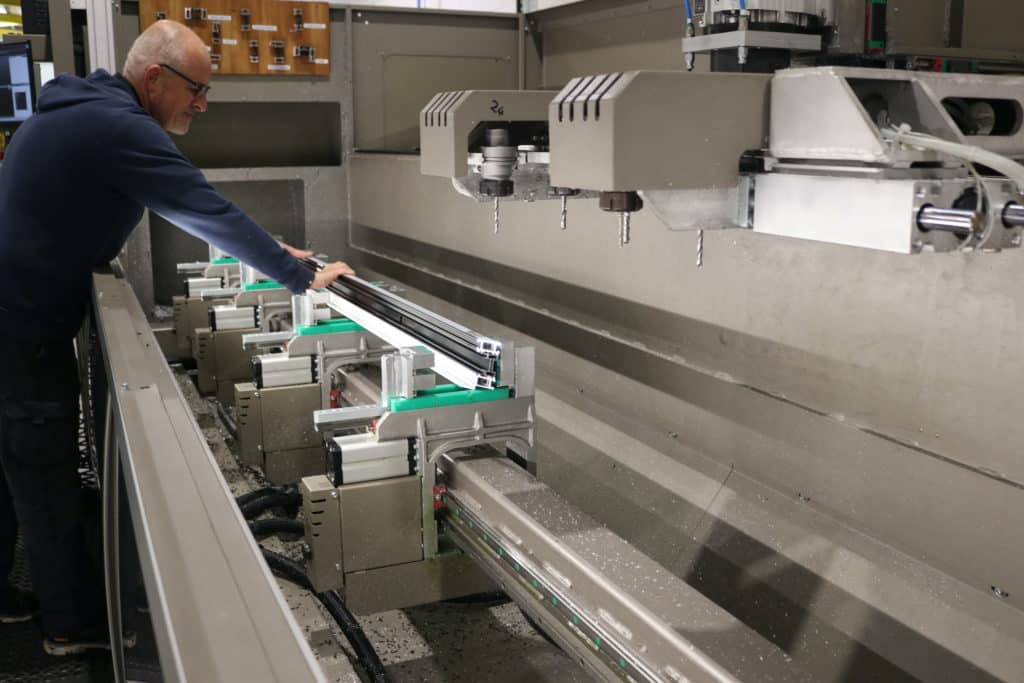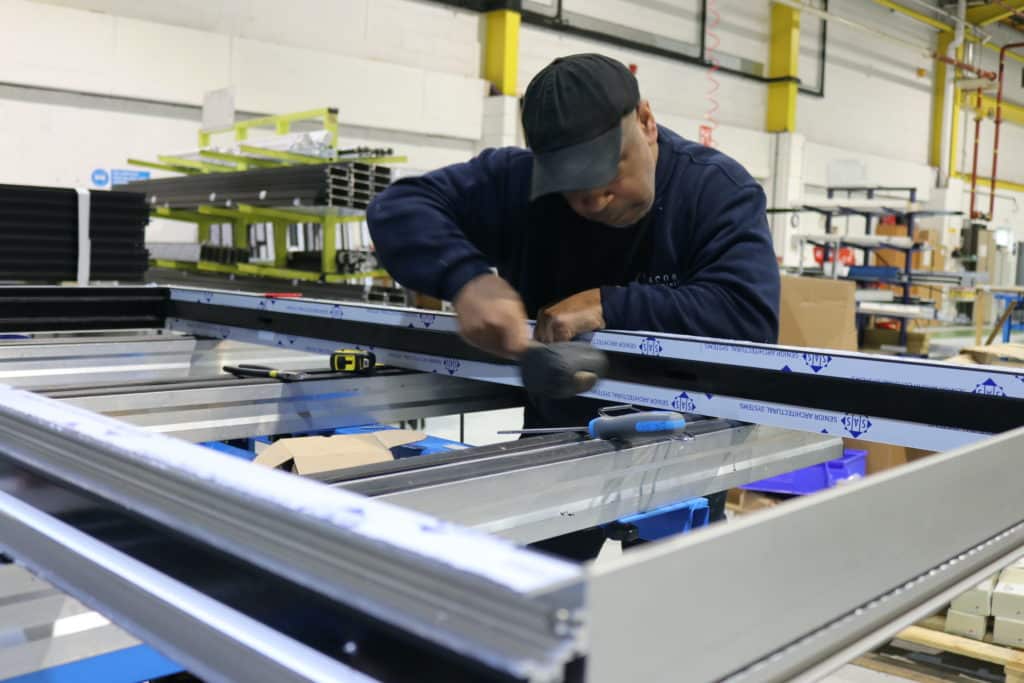Think recession, think lower materials costs? Paul Stevens, Managing Director, Acorn Aluminium argues QSs face further challenges in 2023.
UK recession does not guarantee a drop in demand for construction materials
It’s easy to get caught up in the negative narrative that currently defines the UK economy.
Things are definitely tough, and it would be naïve to suggest that predictions of a drop in UK economic output of around 1.3% [Bank of England and OBR] this year [2023], won’t have an impact on construction.
But it would be wrong to assume that material price inflation, which dominated construction in 2022, is a thing of the past.
Some contraction may be on the horizon but with continuing volatility in energy market and pressure on the cost of labour, we aren’t, as they say, ‘out of the woods yet’.
This in our view, makes continuing tight control in project materials costs, vital in 2023.

Construction output to fall in 2023
According to the CPA construction output will fall by 3.9% this year. The forecast is definitively gloomy, but it’s worth noting that much of the focus is on Private housing.
With an annual turnover of £37bn, it’s the largest sector in the construction industry and is, according to the CPA, predicted to see a fall of 9% this year.
The CPAs forecasts for the commercial sector are still downbeat with a predicted fall of around 5%. Things will be tougher but with so many projects coming down the pipeline as part of long-term investment strategies, demand for commercial building materials – steel, aluminium, glass, concrete – is likely to remain high at a time when energy and labour prices are increasing costs.
A backdrop of record highs
It’s also important to recognise that we’ve entered the new year following a year of record demand.
In contrast to the gloom around the wider economy, the UK construction sector has remained robust, making the third quarter of 2022 the strongest quarter ever recorded, driven by a resurgent commercial sector.
The construction consultancy Arcadis, argus that this provides ‘a solid cushion of workload’ ahead of any toughening of conditions this year.
This it says contributed to a 10% increase in construction tender prices for buildings in 2022. It predicts forecast contraction will push this down this year – but only by an average of 2% – making a major reset on materials prices unlikely.
The impact of energy prices and labour on UK construction
Building materials are also likely to remain high in 2023 because of the wider impact of inflation on the UK economy.
Manufacturers are under significant pressure from rising labour costs and energy prices.
Average salaries were up 6.9% last year, significantly increasing labour and production costs.
Manufacturers also saw energy bills increase with some high usage manufacturers, including the glass sector seeing increases of more than 200%.
It’s important to note that’s with the Energy Bill Relief Scheme in place. It ends on 31st March and so far, the Government has not communicated if, or how it will be replaced or extended.
Continuing uncertainty in construction material prices in 2023
This makes a wholesale re-set of material prices unlikely. Energy intensive materials – glass, steel, concrete, likely to remain high but also hostage to continuing volatility in the energy markets.
This has a clear knock-on effect on main contractors. Making accurate predictions about where the market is going to be in six-months or 12-months’ time when they break-ground is very difficult, with potentially big consequences for project costs.
How value engineering can support main contractors in delivering better value for customers
With more than four-decades expertise in the design, manufacture and installation of aluminium curtain walling, facades, commercial glazing systems and aluminium windows and doors, we work with leading architectural aluminium systems companies.
Manufactured in our state-of-the-art 30,000 sq ft purpose-build fabrication facility, this includes Kawneer, Senior Systems, Metal Technology Systems and Technal by Hydro.
We’ve worked effectively with our supply partners and main contractors to develop more cost-effective solutions to get projects delivered within budget without compromising on cost.

Does it make sense to buy building materials up-front?
The other thing that we have done in the last year to help our customers keep a lid on materials costs is to purchase them up-front.
There is an element of risk in this strategy. Prices as we have seen in the last year, can go down as well as up. Up front purchase of product has, however, meant that we have been able to give visibility to main contractors, supporting QS teams in accurately costing projects, and guaranteeing investment.
In conclusion
We may encounter a slowdown in the number of new commercial projects breaking-ground but materials prices are going to remain volatile – and at historically high levels.
We can support main contractors in controlling those costs through effective partnership working and a proactive approach to specification and vestment of product.
We’re always happy to chat things through so please get in touch.
For more about Acorn Aluminium please call 0115 928 2166, email info@acornaluminium.com or visit www.acornalumnium.com
